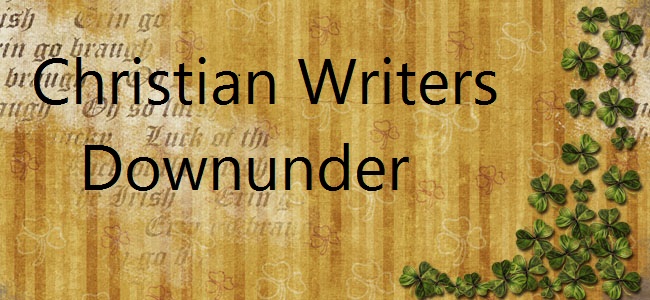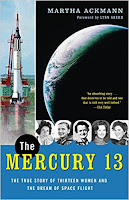I’m a
space nut and have a lot of books and DVDs about the space program, especially
the Apollo era. (Some would say I’m just a nut, but I digress!). One of my
books is The Mercury 13 by Martha Ackmann, which tells the story of a
group of women pilots who underwent a series of tests in the early 1960s to see
if they were suitable for astronaut training. These tests were the same that
the male astronauts had undergone to be admitted into NASA, though the women’s
testing was privately funded and never officially part of NASA.
Thirteen women passed the tests, some of them scoring higher than some of their male counterparts. However, they were never admitted into the space program. In 1963, the Russians launched their first woman into space—Valentina Tereshkova. It would be another 20 years before Sally Ride became the first American woman in space. Another 12 years on, and Eileen Collins made history by becoming the first woman to pilot a space shuttle.
By the time that Sally and Eileen were making their flights, it was too late for the Mercury 13, but the photo below shows seven of them at the launch of Eileen Collins’ historic flight in 1995. Second from the left is Mary Wallace (Wally) Funk, the youngest of the group.
Fast forward to last week when 82-year-old Wally Funk flew into space as a passenger aboard Jeff Bezos’ Blue Origins New Shepard rocket. Wally is one of only two remaining members of the Mercury 13, the other being Gene Nora Jessen. Her 10-minute suborbital flight made her the oldest person to travel into space, beating out spring chicken John Glenn who went to space at the age of 77. Click here to see some footage of Wally’s flight, and the awarding of her astronaut wings.
As writers, we all have dreams. It might be to pen that novel or memoir, win an award, have a bestseller, create a blog that helps people, or just have fun in the process of creating. But sometimes, it seems that those dreams are thwarted. We might get negative feedback that makes us wonder if writing is really what we’re meant to be doing. We might finish that book, but have trouble finding a publisher. We might get our book out there, but sales stagnate. We might hope to reach people for Christ with our life-giving blog, but few people comment. Should we give up on our dreams?
In 1 Corinthians 15:58, the apostle Paul assures us that our ‘labor in the Lord is not in vain’ (NIV). The Good News translation says that ‘nothing you do in the Lord’s service is ever useless.’ We may not always see the results we expect here on earth, but God measures success differently. Nothing we do for him is ever wasted. Our words can make a difference in the lives of our readers.
During the 60 years when it seemed that Wally Funk’s dream would never come to fruition, she didn’t sit around twiddling her thumbs. She kept flying and became the first woman to qualify as a flight inspector for the Federal Aviation Administration. A few years later, she became the first female Air Safety Investigator with the National Transportation Safety Board. She’s been the chief pilot for five aviation schools and has helped thousands of people to achieve their dream of becoming a pilot.
If God has placed a dream on your heart, work towards it, but also trust in Him. He will complete the good work He has begun in you (Philippians 1:6).
Dare to dream!
Author Bio
Nola Lorraine lives in southeast Queensland, Australia, where she and her husband Tim run a freelance writing and editing business called The Write Flourish. Their two cavoodles love helping, and can usually be found asleep under Mum’s desk or barking for ball games when she needs a break. She has a passion for faith and social justice issues, and loves weaving words that inspire others with courage and hope. She co-edited the Christian charity anthology Glimpses of Light; and has more than 150 short publications, including fiction, poetry, devotions, true stories, magazine articles and academic papers. Her debut novel Scattered was published in 2020.To find out more, please visit her author site: https://www.nolalorraine.com.au








































